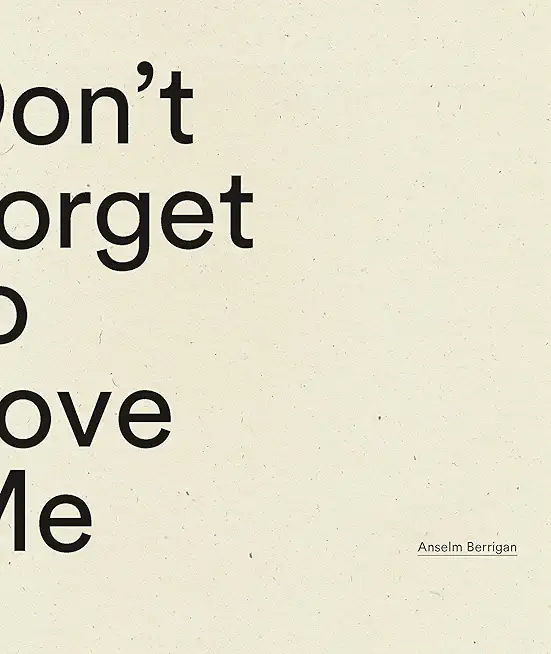
description
orget to Love Me, Anselm Berrigan is at his most intimate, allowing us to tag along through the immediate histories of present moments in poems that were primarily written at the height of the pandemic. In reading these poems, we are permitted to witness their creation, as Berrigan pivots between semiotic slippage and shrewd assertions, letting the form of each poem take shape as it will, a surprise of sound and sight. In one poem he writes that "poetry / contains / multiple / unresolvable questions / A T / TH E / SLAME / TLIME" and later reminds us "there are / no accidents / in poetry / either." With the same acerbic wit found in Berrigan's previous work, Don't Forget to Love Me is an apogee of politics, pathos, and poetics.
member goods
No member items were found under this heading.
Return Policy
All sales are final
Shipping
No special shipping considerations available.
Shipping fees determined at checkout.







